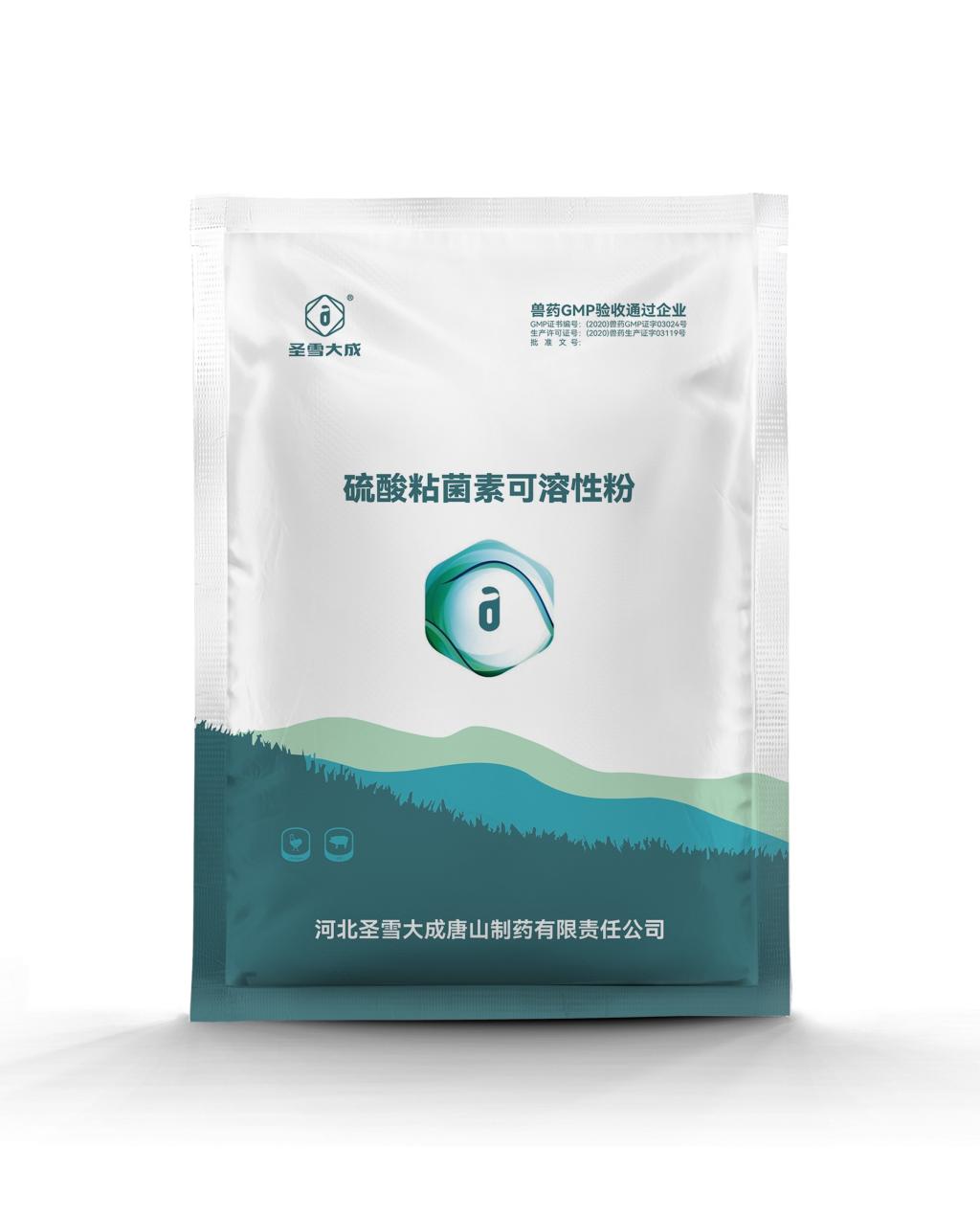Tel:+8618231198596

News
 CONTACT
CONTACT
 CONTACT
CONTACT
- Linkman:Linda Yao
- Tel: +8618231198596
- Email:linda.yao@dcpharma.cn
- Linkman:CHARLES.WANG
- Department:Overseas
- Tel: 0086 0311-85537378 0086 0311-85539701
News
Current Position:
Home >
News
>Colistin Sulfate Soluble Powder's Role in Controlling Endemic Diseases.
Colistin Sulfate Soluble Powder's Role in Controlling Endemic Diseases.
TIME:2024-01-12
Endemic Diseases in Livestock:
Endemic diseases are those regularly found in a particular geographic area, often with predictable patterns of occurrence. Livestock in various regions face the constant challenge of endemic diseases that can impact their health, productivity, and overall well-being. These diseases may be bacterial, viral, or parasitic in nature, and their prevalence can have significant economic implications for farmers.
The Antibiotic Landscape in Veterinary Medicine:
Antibiotics play a pivotal role in veterinary medicine, serving as essential tools for preventing and treating bacterial infections in livestock. Colistin sulfate, a polymyxin antibiotic, has been widely used to combat Gram-negative bacterial infections, particularly in regions where resistance patterns and endemic diseases necessitate effective solutions.
Mechanism of Action of Colistin Sulfate:
Colistin sulfate exerts its antibacterial effects by disrupting the integrity of the bacterial cell membrane. It binds to the lipopolysaccharide component of Gram-negative bacteria, leading to membrane destabilization, increased permeability, and eventual cell death. This mechanism of action makes colistin sulfate particularly effective against a broad spectrum of Gram-negative bacteria.
Applications of Colistin Sulfate in Controlling Endemic Diseases:
Colistin sulfate soluble powder finds application in controlling endemic diseases in livestock through various strategic approaches:
a. Respiratory Infections: Endemic respiratory diseases, such as those caused by Pasteurella spp. and Actinobacillus pleuropneumonia, can significantly impact livestock. Colistin sulfate is employed to address bacterial respiratory infections, promoting lung health in susceptible animals.
b. Gastrointestinal Infections: Diseases like colibacillosis and salmonellosis are endemic in many livestock populations, leading to digestive issues and economic losses. Colistin sulfate helps control and prevent bacterial infections in the gastrointestinal tract, supporting digestive health.
c. Mastitis in Dairy Cattle: Mastitis, an inflammatory condition of the udder, is a prevalent endemic disease in dairy cattle. Colistin sulfate is used in the treatment of mastitis, ensuring the well-being of dairy cows and maintaining milk quality.
d. Wound Infections: Livestock are susceptible to wounds and injuries that can become infected. Colistin sulfate is utilized to prevent and treat wound infections, particularly those caused by Gram-negative bacteria.
Challenges in the Use of Colistin Sulfate:
While colistin sulfate is a valuable tool in controlling endemic diseases, its use is not without challenges:
a. Antimicrobial Resistance: The emergence of colistin-resistant strains poses a significant challenge to its effectiveness. Unregulated or inappropriate use of colistin sulfate can contribute to the development of resistance, compromising its utility in controlling bacterial infections.
b. Responsible Use: Ensuring responsible use of colistin sulfate is crucial to mitigate the risk of resistance. Farmers and veterinarians must adhere to prescribed dosages, treatment durations, and withdrawal periods to prevent the spread of resistant strains.
c. Environmental Impact: The environmental impact of antibiotic use, including colistin sulfate, raises concerns. Efforts to minimize environmental contamination and assess the presence of antibiotics in soil and water are essential for sustainable agriculture.
d. Global Coordination: In the context of endemic diseases, global coordination is crucial. Harmonizing efforts to address bacterial infections and antibiotic use in livestock requires collaboration among farmers, veterinarians, researchers, and regulatory bodies.
Responsible Antibiotic Use Strategies:
To address the challenges associated with the use of colistin sulfate in controlling endemic diseases, several responsible antibiotic use strategies can be implemented:
a. Surveillance Programs: Establishing surveillance programs to monitor antibiotic use, resistance patterns, and the prevalence of bacterial infections is fundamental. These programs contribute to data-driven decision-making and help identify emerging challenges.
b. Antibiotic Stewardship: Implementing antibiotic stewardship programs emphasizes the judicious use of antibiotics, including colistin sulfate. This involves education, training, and guidelines to ensure responsible antibiotic use in livestock.
c. Alternatives and Complementary Measures: Exploring alternatives to antibiotics and implementing complementary measures, such as vaccination programs and biosecurity practices, can reduce dependency on colistin sulfate and minimize the risk of resistance.
d. Regulatory Oversight: Regulatory bodies play a crucial role in overseeing antibiotic use in agriculture. Clear guidelines, strict enforcement, and collaboration with the agricultural sector are essential components of effective regulatory oversight.
Sustainable Agriculture and Animal Welfare:
Controlling endemic diseases through the use of colistin sulfate aligns with broader goals of sustainable agriculture and animal welfare. Sustainable farming practices prioritize the health and well-being of livestock while minimizing the environmental impact of agricultural activities. Responsible antibiotic use contributes to the overall sustainability of animal agriculture.
Future Directions and Innovations:
The future of controlling endemic diseases in livestock involves ongoing research and innovations:
a. Development of Alternatives: Investing in research to develop alternatives to traditional antibiotics, such as probiotics, prebiotics, and phytogenic additives, offers sustainable options for disease control.
b. Precision Livestock Farming: Integrating precision livestock farming technologies, including real-time health monitoring and automated medication delivery, enhances the precision and efficiency of antibiotic use.
c. Global Collaboration: Collaboration at the global level is essential to address the challenges of endemic diseases. Sharing knowledge, best practices, and resources facilitates a collective approach to disease control and responsible antibiotic use.
d. Public Awareness: Raising public awareness about the importance of responsible antibiotic use in agriculture fosters informed consumer choices and supports sustainable farming practices.
Conclusion:
Colistin sulfate soluble powder plays a pivotal role in controlling endemic diseases in livestock, contributing to the health, welfare, and productivity of animals. The challenges associated with its use underscore the importance of responsible antibiotic use, surveillance programs, and global collaboration. As agriculture navigates the complex landscape of antibiotic resistance and strives for sustainability, the strategic and responsible use of colistin sulfate remains a crucial element in the broader efforts to ensure the well-being of livestock and the long-term viability of animal agriculture.
- Tel:+8618231198596
- Whatsapp:18231198596
- Chat With Skype







